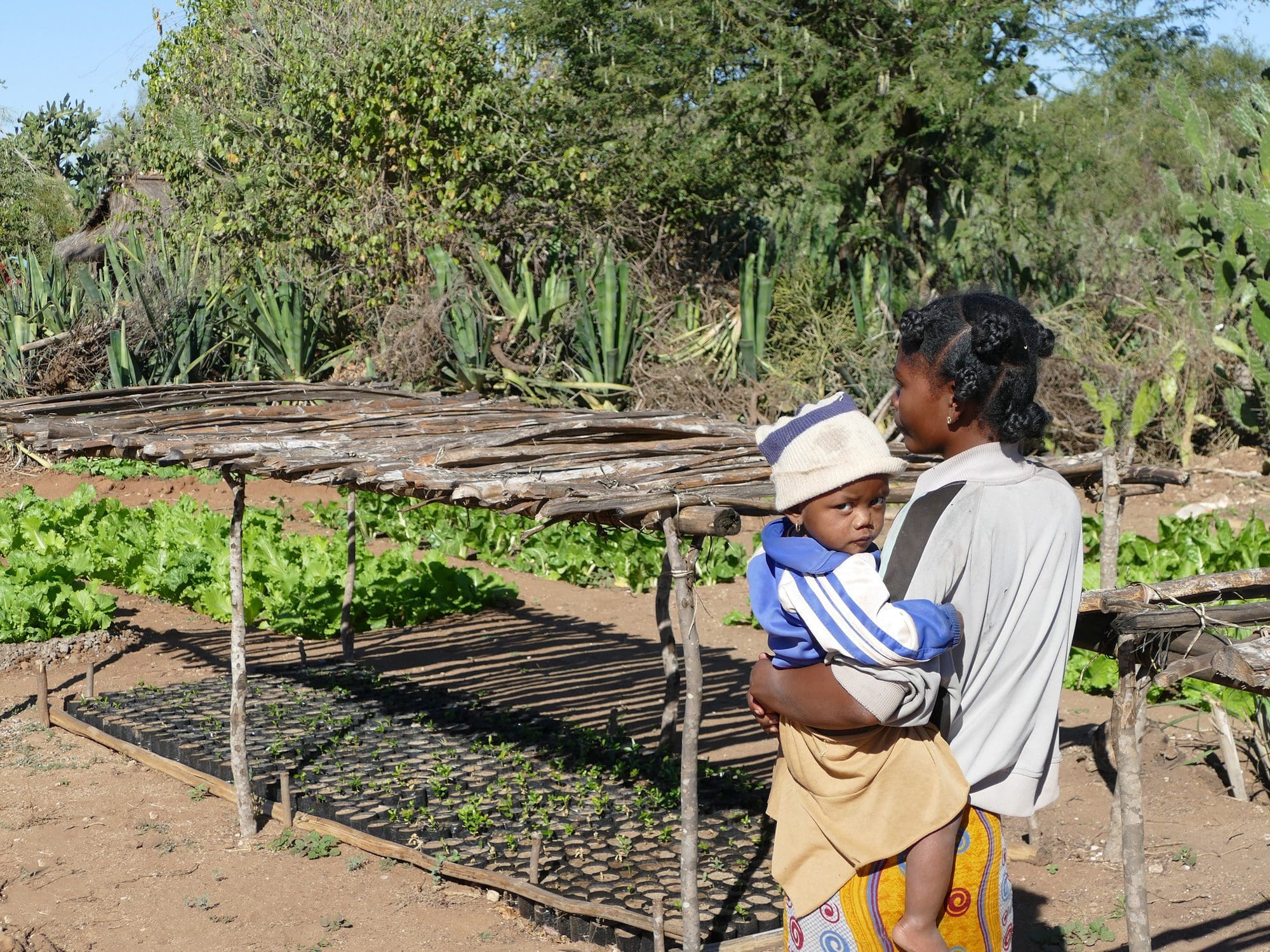Drought and afforestation
29 September
Drought and afforestation
The situation in Madagascar's south remains precarious. In the chronically dry region around Ejeda, only about 200 millimetres of water fall per year. The climatic situation will not improve in the long term; the opposite is to be feared. At stake is nothing less than the existence of many villages, whose population is threatened with forced migration if the wells dry up.
ADES is taking different approaches to meet the challenge:
- Various tests are taking place with the integration of bamboo in reforestation projects. Fast-growing bamboo can be an alternative to trees as a fuel and construction material. In the process, sensible measures are taken to preserve endemic biodiversity.
- ADES will strengthen forest protection. To protect existing forests, ADES is looking into funding a ranger service in the sacred forest (forêt sacrée) near Toliara. This is to ensure the protection of the forest. The rangers also serve as contact persons for the surrounding villages. In this way, ADES is creating new meaningful and sustainable jobs in southern Madagascar.
- The plant and animal population in existing forests such as the sacred forest is to be scientifically inventoried. From empirical data, ADES concludes that only about two thirds of the existing species in the forest are known. Knowledge of this is fundamental to effective and meaningful forest protection.
- Further expansion of agro-ecology. This includes basic soil greening as protection against erosion, the consistent implementation of food sources such as cereals and legumes as well as timber in afforestation and measures against direct rainwater runoff through water management.
- Consistent protection of plantings from wind and animals.


